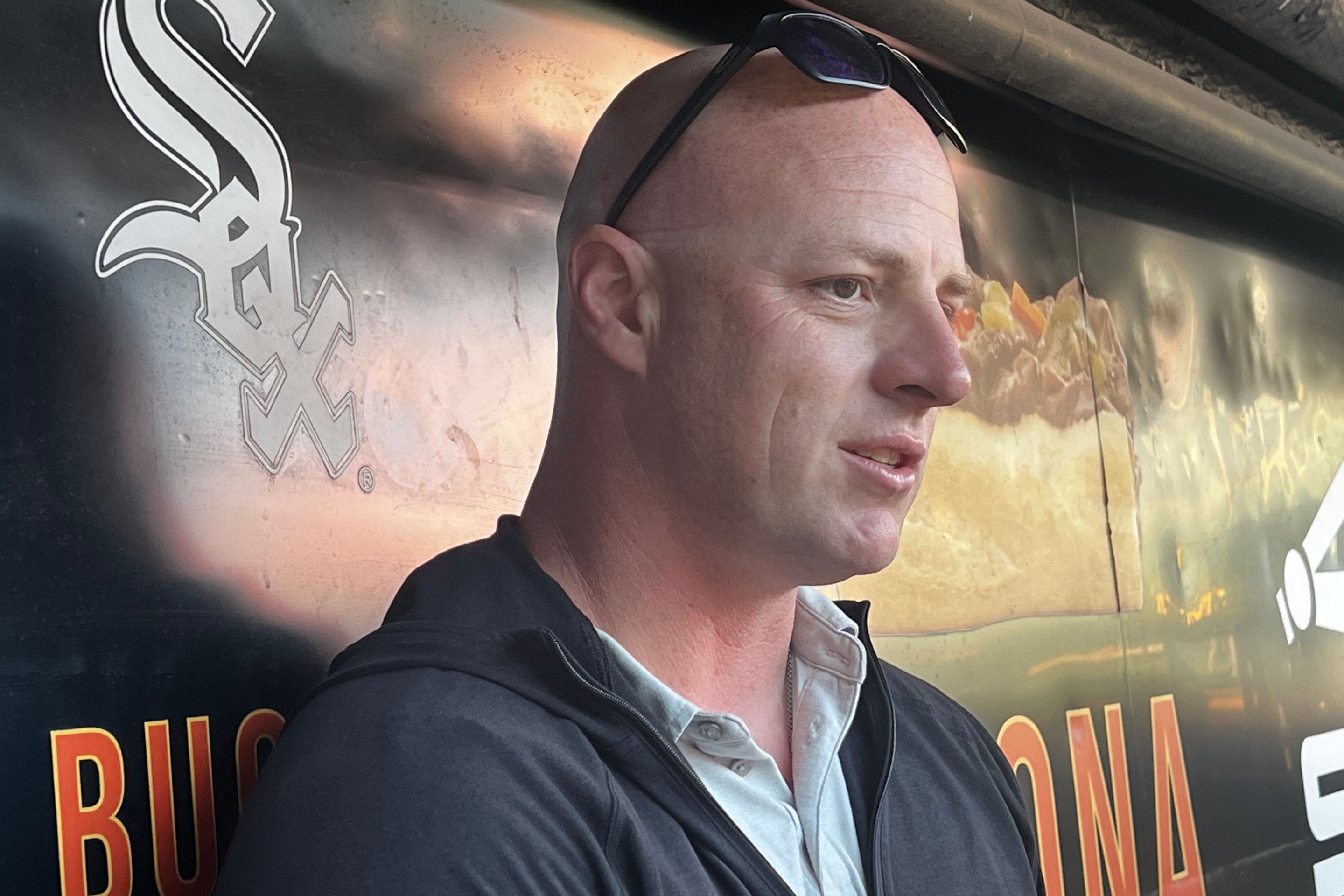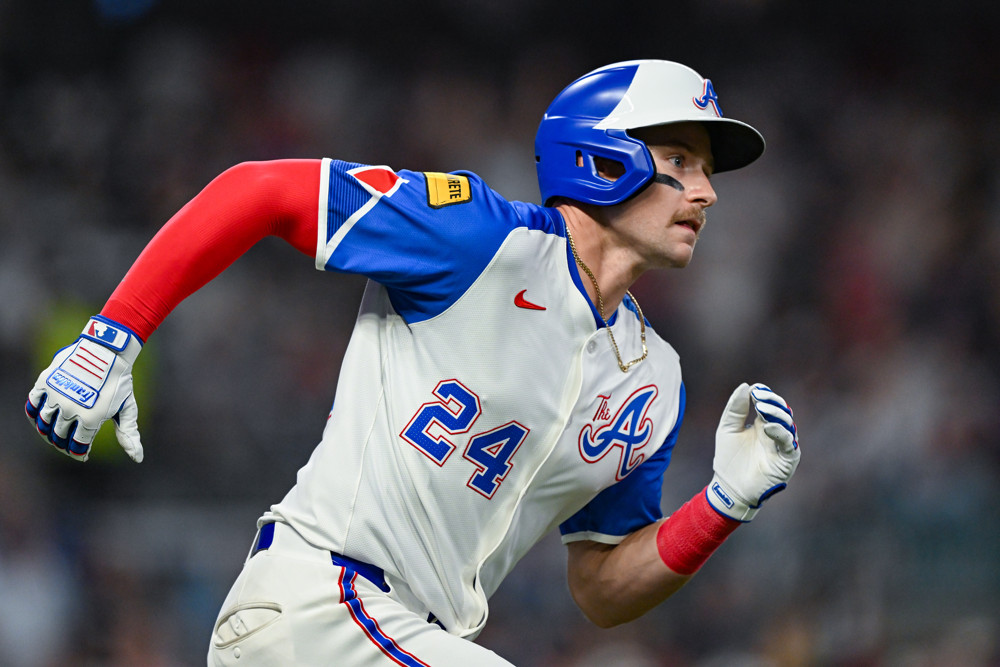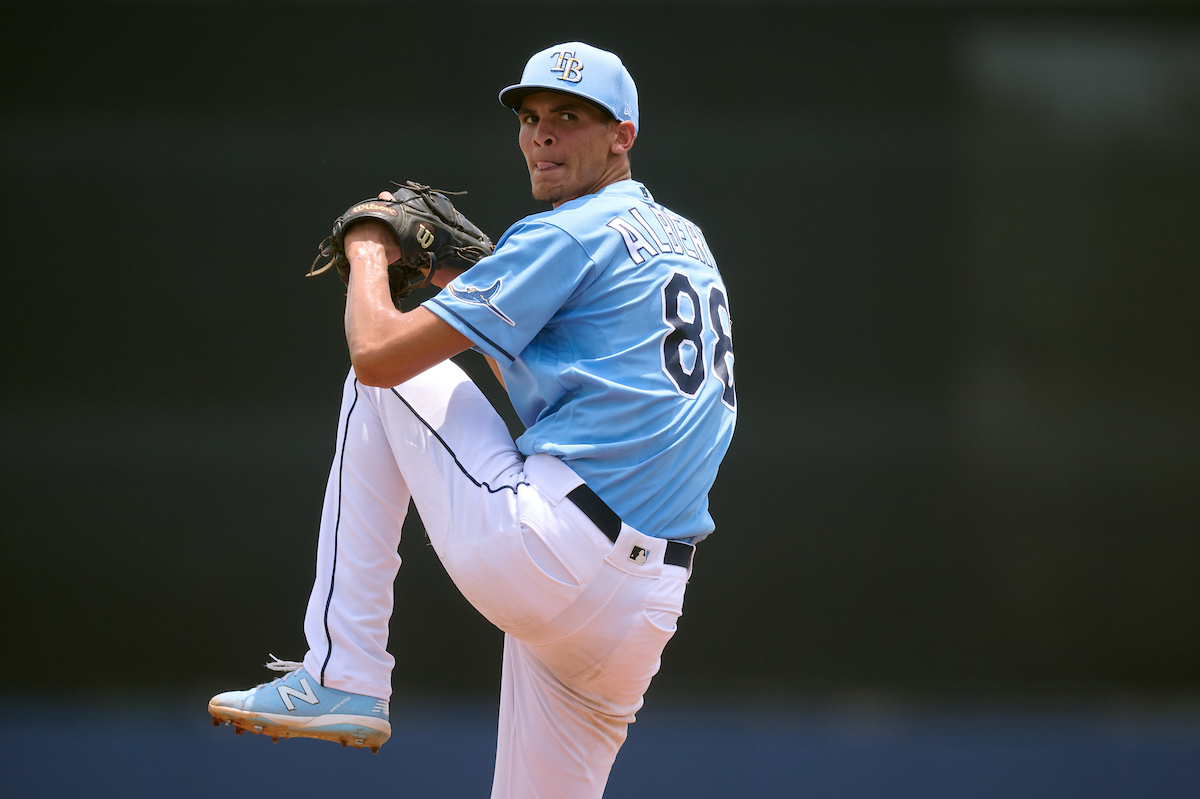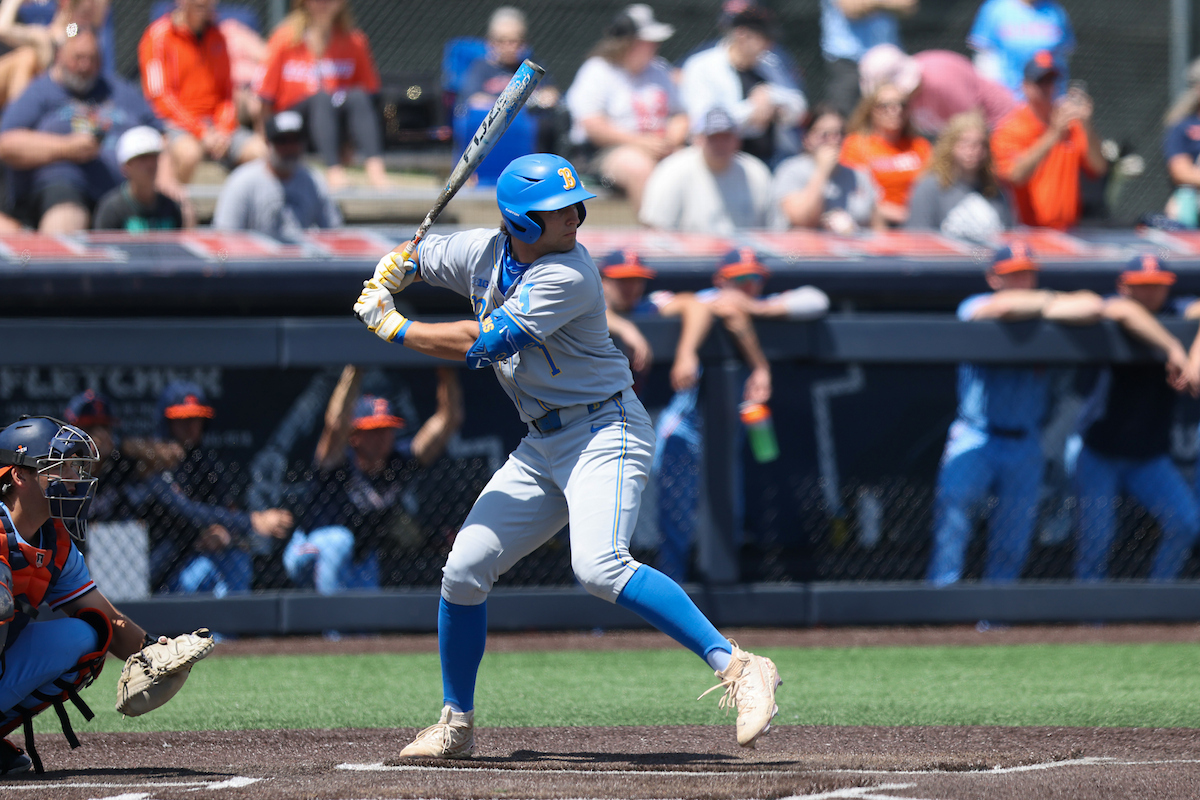Following up on the first part of the mega-sized mailbag, here's the second half of P.O. Sox, exclusive for you fine folks who support us on Patreon. It doesn't include this one from Joe:
The "cost controlled" contracts given to Robert, Moncada and Eloy were supposed to keep this contention window open, when in fact it might have the opposite affect. How much do you think Eloy and Moncada are getting overpaid in comparison to what they would have made if allowed to go through the normal arb process?
... because I was already planning on tackling that topic to some degree, and I made sure to answer that question in Monday's post about the way the extended White Sox have come up short.
As for the others, we'll start with three questions that all circle around the same concept:
They're going to run it back, aren't they?
They're going to blame injuries, let Tony finish his contract, claim the returned players are their free agent spending and claim THIS TIME there will be consequences… like putting Kenny Williams' children in charge.
-- Rob L.
How does Rick Hahn keep his job?
-- LiL Yumper
What is a realistic off-season expectation for this team and org. Are we just going to get more Rick Hahn excuses and word salad.
-- Pete Hand
Well, Tony La Russa is out indefinitely, but that question was asked before his health problems emerged.
The big question the White Sox have to answer by early October is whether they think the status quo is acceptable. Certainly the players could do it with a huge finishing kick, but I'm of the mindset that if they could have fixed even a portion of their myriad flaws, they would have done so already. Instead, it's been one big game of Whack-a-Mole. "The offense comes back, but the bullpen is overworked. The defense is better, but now pitchers are hurt."
If they scuffle to .500 or plummet out of relevance, sticking with any of the people in charge risks a huge death blow to interest. Yet at the same time, if this is what inspires Rick Hahn to take huge chances, that's also dangerous, because his greatest successes are limited to knocking things down. Finishing things is not his forte.
But let's say Kenny Williams moves elsewhere at the end of his contract, and he's not operating under a lifetime contract, but one that ends this year. The White Sox could use that as an opportunity overhaul everything. In the more likely scenario that they'd promote everybody up one level, I guess we'd have a better idea of what exactly Williams does or doesn't do around the White Sox.
Where do we go from here? Not much on the farm, record payroll, a lot of issues with the major league team with no obvious solutions. I don't think simply firing Tony fixes it and new ownership is not an option at the moment. Are we stuck in mediocrity for the foreseeable future yet again?
-- orajestad9
I don't think it's that dire at a talent level, but when the same front office keeps using the same approach to the same problems into a second decade, it can feel that way. "Get a new front office" feels somewhat as hopeless as "sell the team" and as vague as "hire a new hitting coach," but I wouldn't underestimate the kind of jolt a new GM could put into this fan base. 20 years is a long time to be in the same place, especially when the last 16 haven't accomplished anything of note.
For the remainder of this season, I’m going to take you up on your offer to watch the Sox so I don’t have to. Are you watching for something specific, or just watching the disaster unfold?
Andrew S.
There's documenting the disaster, sure, because I find it important to catalog the mistakes the White Sox make, how they make them, and the consequences all the way through. But in terms of baseball-watching enjoyment, it's basically hoping enough guys recoup value for their projections next year, or trades elsewhere. Seeing Eloy Jiménez and Gavin Sheets homer in the same game warmed my heart, and I'd like to see Andrew Vaughn finish the year strong. One of Lance Lynn or Lucas Giolito fully recovering by the end of the season would be terrific. But unless they recall Lenyn Sosa or purchase the contract of Oscar Colás, there aren't going to be a whole lot of much-watch ABs.
preface: I had watched at least part of each Sox game this season until this series. The 1st at-bat I witnessed was Andrus’s double, fate had a laugh at my expense.Question: the O’s have been bad for awhile, could a smart team learn anything from their path to some success (I note that they beat Houston 2of3 this weekend scoring 6 total runs.
-- Gar Ridge
I'm fascinated by the effects of moving their left-field wall back as far as they did. They're 37-24 at home, and 30-37 on the road. They've given themselves a slight of home run edge at Oriole Park (61-57) after getting blasted out of their own digs last year (outhomered 155-122). That's done a lot to get them into lower-scoring games, and they can make those happen because their pitching apparatus cranks out power relievers with at least one amazing pitch.
They've also benefited from extreme losing, because they wouldn't have gotten Adley Rutschman otherwise, but I wouldn't want to see them pursue that route again. It's probably easier to try to steal some ideas from their pitching development. Speaking of which...
In the highly unlikely, yet extremely necessary, event that Jerry does clean the entire house, is there a standout organization or two that you think he should poach from?Love this part of the season, gearing up for the playoffs by seeing which orgs have the best medical teams and scouting departments.
-- JT
There's a great article by Andy McCullough in The Athletic about how the Mets have tried to copy the Dodgers by interviewing their personnel, from the assistant GM to the first-base coach. The Dodgers have a resource advantage over everybody, but they also have a depth advantage over everybody because they can turn cast-offs into part of their cast. Here's Trayce Thompson hitting .301/.388/.564 over 50 games is the most recent galling example of how good they are at that sort of thing.
The other answers have been the obvious ones for the league: Houston and Tampa Bay. But the Dodgers really are the best at everything when it comes to spending money and saving money.
It seems highly unlikely that the Sox don’t try to resign Abreu this off-season, but with Andrew Vaughn and Gavin Sheets being two of the few offensive bright spots in the 2nd half of the season, where does this leave our already unbalanced roster? Eloy can’t be counted on to play a full season in the outfield either and could also benefit from more DH. I don’t envy Rick Hahn here, but something has to be done. What do you do if GM for a day?
-- William T.
With Vaughn, Sheets, Burger, Eloy, and maybe Abreu coming back next year, how do you fix the 1B/DH logjam? Who do you deal? Who can be dealt? Who does the least damage in the field and at what position?
-- Vince
I think the easiest way to pare down the roster is to let Abreu walk and trade Sheets, although Sheets' production is so home-heavy that 1) you'd hate to lose the one guy who can actually take advantage of Guaranteed Rate Field being lefty-friendly, and 2) you wonder his trade value is contingent on the home park of the suitor.
Jiménez is going to be the most fascinating figure in offseason plans because his situation is the hardest to assess. He has elite hitting skills when healthy, but how often is he healthy? It can feel like selling low, but with a steep salary trajectory locked in, his trade value can go lower if he's limited to another 60-game season. Whatever decision the White Sox make with their training staff and regmin this winter might have to be designed with him in mind, if they can do such a thing.
As for Burger, he seems like a change-of-scenery type, although I looked at Micker Adolfo the same way, and he's still around.
Josh mentioned that the team’s complicated ownership structure means a sale would take at least a year to complete. What happens if 86-year-old Jerry Reinsdorf dies before the team is sold? Would his family determine the next owner, or would other partners have more of a voice than they do now? Is there a chance that 95-year-old partner Lee Stern is making hiring decisions in such a scenario? (Stern’s Chicago Sting did win the 1981 North American Soccer League championship, so he has that going for him.)
Asinwreck
This Chicago Tribune story from 2013 says that Reinsdorf (or the executors of his will) have the ability to sell the team without the approval of other investors, but it's not out of the question that others owning shares would lobby for a greater say in the proceedings
He said that gives him — and the executors of his will, whom he declined to name — authority to sell without the approval of other investors. Experts said that, if sold today, the team could easily surpass the $800 million paid two years ago for the San Diego Padres, a team with just 13 winning seasons and scant tradition.
While Reinsdorf makes the team's future appear clear-cut, it may not be. One son said in an interview that he isn't sure what will happen. And while other investors in the Sox agree that Reinsdorf asserts absolute control on sales, they expressed confusion about what would happen once Reinsdorf dies. Some indicated a desire to own the team well into the future.
Stern is quoted in that article, too:
Meanwhile, the board continues to shrink in size and currently numbers 10. In interviews, members said they assumed a successor will be decided upon Reinsdorf's death but conceded they aren't worried about the process.
"Nobody knows whether those owners are going to be around. Jerry may outlive everybody," said Lee Stern, 86, a longtime Chicago trader who founded the Chicago Sting and is a Sox board member with a 2 percent stake. "Jerry could live to be 100 and the whole board is gone."
So I've been assuming that the team would change hands if the Reinsdorf family wanted out, and fairly quickly.





